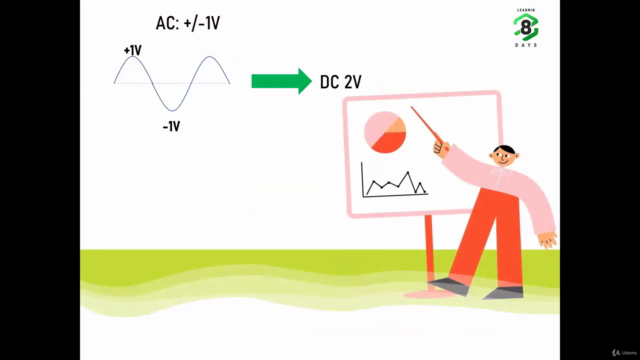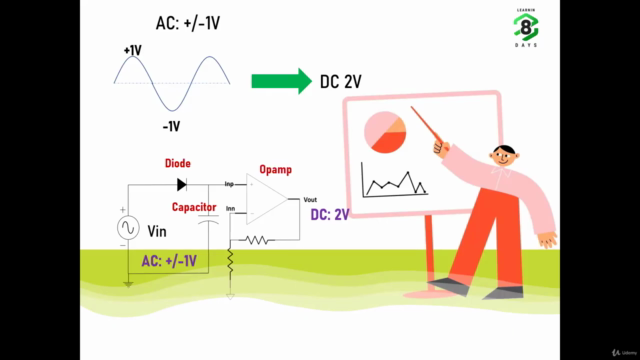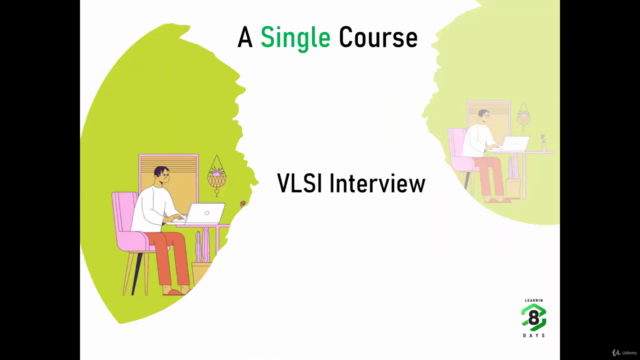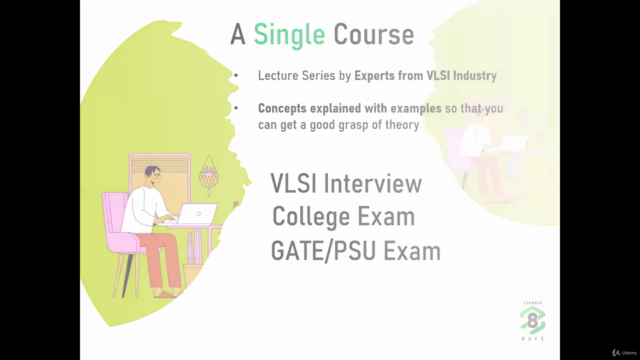Analog Circuit Crash Course for VLSI Interview and GATE exam
A Crash Course for VLSI Interview & Exams -This Course will cover most important concepts on Opamp, Diode and Capacitor
4.40 (25 reviews)

89
students
7 hours
content
Jul 2021
last update
$24.99
regular price
Why take this course?
🌟 Analog Circuit Crash Course for VLSI Interview & GATE Exam 🌟 GroupLayout: This is a targeted crash course designed to equip students with essential knowledge of Opamp, Diode, and Capacitor for excelling in VLSI interviews and Competitive Exams like GATE/PSU, as well as for mastering college-level courses.
🚀 Why Take This Course? 🚀
- Expert-led Learning: Dive into the world of VLSI with video lectures meticulously prepared by industry veterans in the field of VLSI.
- Comprehensive Coverage: From basic to advanced concepts, this course ensures you have a robust understanding of Op-amp, Diode, and Capacitor – key elements in analog circuit design.
- Industry Perspective: Get insights into how these components are used in the real world, enhancing your knowledge beyond theoretical learning.
- Self-paced Learning: Learn at your own pace, with a flexible schedule that fits your life and commitments.
- Problem Solving: Tackle real-world problems similar to those you'll face in VLSI interviews and Competitive Exams such as GATE/PSU.
- Interview Readiness: Prepare for your VLSI interview with confidence, armed with practical knowledge and problem-solving skills.
📚 Course Highlights:
- Opamp Mastery: Explore the fundamental properties of Operational Amplifiers (Opamps), understand their behavior in open loop and close loop configurations, and grasp complex concepts like gain, bandwidth, and feedback mechanisms.
- Capacitor Dynamics: Delve into the basic properties of Capacitors, learn about series and parallel configurations, and analyze initial and steady state behaviors. Get hands-on with practical applications such as RC response, ripple reduction, and charge conservation principles.
- Diode Applications: From understanding regular and Zener Diodes to implementing diodes in circuit design for clipping, clamping, and rectification, this course covers it all.
🎓 Key Topics Covered:
- Opamp: Basic properties, open loop and close loop operation, gain and bandwidth, inverting and non-inverting configurations, saturation, input offset, closed loop negative feedback.
- Capacitor: Basic properties, series and parallel capacitor analysis, initial and steady state charging, charge conservation, RC response, ripple reduction.
- Diode: Exploration of regular and Zener Diodes, diode modeling, clipper, clamper circuits, half wave and full wave rectifier applications.
🎓 Who Should Take This Course?
- Aspiring VLSI professionals looking to ace their interviews.
- College students preparing for VLSI courses and exams.
- Anyone aiming to excel in Competitive Exams like GATE/PSU.
🌍 Embark on your journey towards a successful career in the VLSI industry with this comprehensive course. Equipped with the knowledge of Opamp, Diode, and Capacitor fundamentals, you'll be well-prepared to tackle interviews and exams with confidence. 🌍
All the best, and here's to your future success in VLSI! 🚀🎓✨
Course Gallery




Loading charts...
Related Topics
4057022
udemy ID
17/05/2021
course created date
16/08/2021
course indexed date
Bot
course submited by